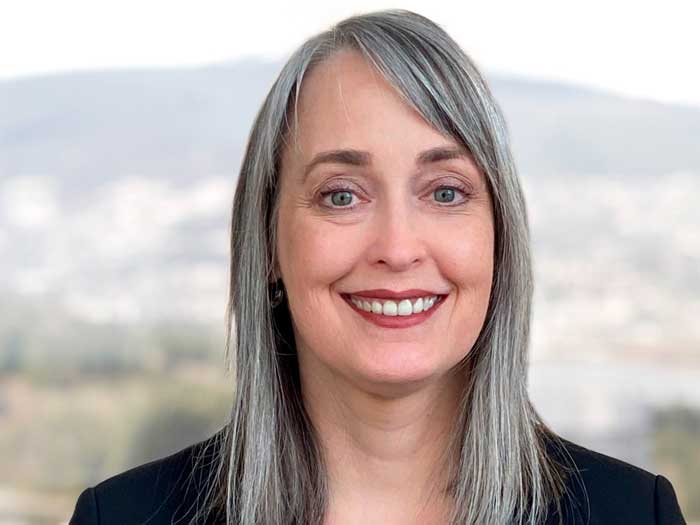
Why ESG can provide immense opportunities for businesses
 Gaede believes CPAs have the relevant skills and competencies to bridge financial reporting and strategy with sustainability (Getty Images/Ezra Bailey)
Gaede believes CPAs have the relevant skills and competencies to bridge financial reporting and strategy with sustainability (Getty Images/Ezra Bailey)
You can’t enter a boardroom today without hearing terms like ESG, net-zero, sustainable finance and climate change mitigation as centre pieces of discussions.
To help propel the conversation forward, CPA Canada will host its first ESG Annual Symposium on June 2, 2022, uniting CPAs and other business professionals with global sustainability advocates and subject-matter experts.
The virtual event boasts an agenda of dynamic keynotes and in-depth sessions tackling topics from the path to net-zero to global sustainability disclosure and reporting standards.
Ahead of the symposium, we spoke with session leader and ESG Ambassador Lara Gaede, FCPA, co-lead, ESG reporting advisory for Deloitte Canada, to get her insights on this evolving landscape.
CPA CANADA: What does sustainability and ESG mean today as it becomes a foundation for business operations, market stability and global economic wellbeing overall?
Lara Gaede (LG): As the demand for consistent, comparable and decision-useful information continues to grow, sustainability and ESG information have proven fundamental to stakeholders in their ability to make decisions. Organizations will need to develop an integrated mindset to allow them to demonstrate their long-term resilience and enable value enhancement. To do so, entities should consider their carbon footprint and other environmental and social impacts to their business as a normal part of making strategic and operating decisions. This information will lead to more informed decisions by shareholders, governments and other stakeholders as enhanced disclosures of ESG risks and opportunities get factored in.
CPA CANADA: For organizations that are new to sustainability endeavours, how can they catch up?
(LG): The first step on the sustainability and ESG journey should be to develop an understanding of where they are as an organization today (i.e., what are you currently doing and what are your needs), and an understanding of their stakeholder’s needs and demands.
CPA CANADA: What are some of the most recent developments in the sustainability reporting landscape and how should organizations prepare to respond?
(LG): The reporting landscape has had several significant developments within the year, all of which have followed a similar trajectory. Globally, standard setters and regulators have moved towards more consistent and comparable climate-related disclosures.
Organizations should be prepared for some level of mandatory or voluntary disclosures driven by stakeholders, and for some level of mandatory or voluntary assurance. In preparing for reporting and/or assurance, companies should consider the potential benefits of a readiness assessment. They should also consider the impacts of new reporting requirements on their existing processes and systems, the control environment and the quality and availability of data.
 Lara Gaede, FCPA, co-lead, ESG reporting advisory for Deloitte Canada (Image provided)
Lara Gaede, FCPA, co-lead, ESG reporting advisory for Deloitte Canada (Image provided)
CPA CANADA: What do you see as the biggest risks and opportunities of ESG for organizations?
(LG): Integrating sustainability and ESG into existing business models can provide immense opportunity and contribute to an organization’s longevity. By redefining their business strategy to embed considerations of planet, people and prosperity, organizations can build principles of equity and sustainability into their new “business-as-usual.”
However, from a risk perspective, organizations should be mindful of greenwashing, of not fully understanding their stakeholders’ expectations and of trying to do too much all at once.
CPA CANADA: What roles do CPAs play in ensuring that organizations are up to speed and resilient in the sustainability and ESG space?
(LG): With strong financial backgrounds and significant involvement in decision making, CPAs play a critical role in bringing the level of maturity seen in financial reporting to sustainability and ESG reporting. As trusted advisers, CPAs have the relevant skills and competencies to connect financial reporting, strategy and sustainability. There are many similarities between financial reporting and sustainability reporting such that CPAs can use many of the skills they have already developed to ensure appropriate controls, processes and systems are in place. They can also report decision-useful information in a transparent manner; provide assurance over reporting in accordance with a framework, among other things.
CPA CANADA: How can organizations adapt, grow and prioritize change when it comes to ESG? What advice do you have for them?
(LG): Change is inevitable. It is key to ensure that the organization has staff or consultants with the right skillset. Once organizations understand where they are and determine where they want to get to, milestones and key performance indicators can be determined to measure success access these goals.
DIVE DEEPER INTO ESG ISSUES
Catch Lara Gaede’s session, “ESG is Here: Why Should CPAs Care?” at CPA Canada’s ESG Annual Symposium on Thursday, June 2. And don’t miss the in-person networking reception on June 7. See the full agenda for details.
Plus, learn more about the evolving corporate reporting landscape; take advantage of CPA Canada’s sustainability assurance resources and find out which are the 10 key elements to sustainable business practices in SMEs.